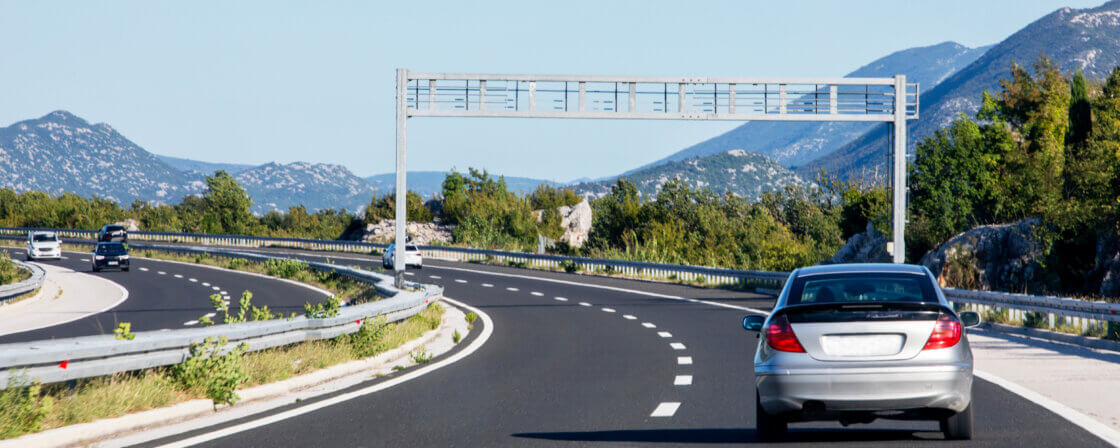The electronic vignette system is a typical example of the combination of regulation, digital technology and user responsibility. While many drivers appreciate the convenience of buying a vignette online, they also run the risk of legal consequences related to inattention or incorrect data. From a legal perspective, it is essential to understand that this is not a consumer relationship but a public law institution governed by specific rules.
An electronic vignette is not a contract of sale
The fundamental point of the legal qualification of an electronic vignette is its public law nature. It is a time charge for the use of selected roads, namely motorways and certain expressways. This charge is regulated by the Road Act. So, although the term electronic vignette has gained currency, the law does not recognise it.
Unlike the normal purchase of goods or services, the payment of a vignette online does not constitute a contract of sale under the Civil Code. For this reason, it is not possible to unilaterally withdraw from a “contract”, for example, under Section 1829 of the Civil Code (distance consumer contracts). There is therefore generally no right to a refund of the fee paid for an unused stamp – with the exceptions set out below.
The time fee is linked to the registration mark
The time fee (vignettes) paid is linked to the specific registration plate (number plate) of the vehicle, not to the holder or operator of the vehicle. This information is crucial – incorrectly entering the number plate may lead to a fine at the time of inspection.
Since January 2021, it has been possible to purchase a vignette online on the edalnice.cz portal or through terminals and branches of contractual partners. The system will then link the vehicle registration number to the period of validity of the time charge.
From a legal point of view, this creates a public law relationship between the toll payer and the state, whereby the state (through the State Fund for Transport Infrastructure – SFTI) grants the right to use the toll road sections for a certain period of time. The time fee can be paid for 1 year, 30 days, 10 days or 1 day.
Are you solving a similar problem?
Do you know how to deal with a wrongly entered vignette or are you facing a fine?
Contact an Affordable Lawyer – we offer fast and easy to understand legal help online. Our lawyers can help you resolve disputes, advise you when you are entitled to a refund and even help you defend against a fine.
That's what I'm wondering
- When you order, you know what you will get and how much it will cost.
- We handle everything online or in person at one of our 6 offices.
- We handle 8 out of 10 requests within 2 working days.
- We have specialists for every field of law.
Is it possible to correct incorrect data?
A practical and legally important question is whether it is possible to correct incorrectly entered data, in particular the registration number or the country of registration. According to the current legislation, these data can be corrected once and only until the time of the start of the validity of the mark.
Correction is possible via the edalnice.cz portal or at the point of sale. After the start of the validity of the time fee, it is no longer possible to correct the number plate – even in the case of an obvious error. In practice, this means that a driver who, for example, enters an incorrect number plate has to pay another vignette.
There is no claim for a refund if the wrong details are entered
It follows from the above that incorrect payment of the time charge (vignette) can lead to loss of funds. However, a claim for compensation for unjust enrichment may be considered in certain cases.
Under Section 2991 of the Civil Code, whoever has been enriched at the expense of another without legal justification is obliged to repay the enrichment. Therefore, if the fee was not used for its intended purpose (e.g. the number plate does not match the vehicle actually driven), it is theoretically possible to claim reimbursement of the amount paid – not as a withdrawal from the contract, however, but on the grounds of unjust enrichment.
The case law in this area is not yet settled, so we recommend that you always check the details carefully and take the opportunity to change the details before the validity of the time charge (electronic vignette) begins.
Where to buy a vignette
Both public authorities and private bodies are involved in the collection of the time charge (electronic vignettes). The law allows for the collection of the toll to be carried out by third parties on the basis of a public contract.
In practice, this means that a driver can buy a vignette online, at a branch of the Czech Post or, for example, at a network of ČEPRO petrol stations. Even in these cases, however, the collection of the public toll is not a commercial relationship between the customer and the operator of the branch in question.
Tip for article
Tip: The Police of the Czech Republic also checks vignettes. Read about this armed branch of the state and find out what all the police departments are and how to become a police officer.
What data does the system record?
The time charging system (electronic vignettes) records the following data:
- Vehicle registration number and country of registration
- type of propulsion (e.g. natural gas, biomethane – for exemption purposes)
- date and time of payment
- start and end of the validity period
- contact e-mail or telephone number (if provided)
From a legal perspective, it is important that this information is linked to the purpose of the administrative control and may not be used or passed on to other entities without justification. The system may also send you a notification when a stamp is about to expire, but only if you have entered your contact details at the time of purchase.
What if I don’t pay?
Failure to pay the time fee is an administrative offence, which can result in a fine of up to 20,000 CZK. Checks are carried out by the Police of the Czech Republic and the Customs Administration, both randomly and via a camera system linked to a central register.
If a vehicle is caught on a toll section without a valid tag, it is considered an offence under the Road Traffic Act. The driver or the operator of the vehicle may be required to pay a so-called order fine (on the spot) or proceedings may be initiated.
Who must have a vignette and when?
The obligation to have a vignette applies to all motor vehicles weighing up to 3.5 tonnes entering toll motorways in the Czech Republic. As far as cars with trailers are concerned, if the total weight of the whole combination does not exceed 3.5 tonnes, it is sufficient to have an electronic vignette for the towing vehicle only. Motorcycles do not need a vignette at all.
The requirement for a vignette does not apply to all motorways, but only to those sections that are specifically marked as toll roads. These sections are usually marked with a “Motorway – Toll Section” sign.
Tip for article
Tip: Do you know what car insurance you can’t take your car on the road without? Here’s an overview of the insurances that the law requires drivers to have.
Who doesn’t have to pay?
The law provides for several exceptions when a vehicle is exempt from the time fee. These include:
- vehicles powered exclusively by an electric motor
- vehicles registered as historic or sports vehicles
- vehicles carrying disabled persons (on the basis of a ZTP or ZTP/P card)
In some cases the exemption is automatic, in other cases it is necessary to apply for registration of the exemption in the system (e.g. for CNG/biomethane vehicles).
Summary
The electronic vignette, introduced in the Czech Republic in 2021, is a public time charge for the use of selected motorways, not a purchase contract, and its regulation is governed by the Road Act. The vignette is linked to the registration number of the vehicle and not to its operator, and incorrect data entry may lead to the vignette being invalid and unable to be corrected once it has been valid. In the event of an error, it is not possible to claim a refund in the traditional way, but only theoretically on the grounds of unjust enrichment. Stamps can be bought online, at the post office or from contractors, but there is still a public charge. The system records details such as number plates, type of drive and period of validity, and the fine for driving without a stamp can be up to CZK 20,000. The stamp is compulsory for vehicles up to 3.5 tonnes on toll sections, with exceptions for electric cars, historic vehicles or cars carrying people with disabilities.




